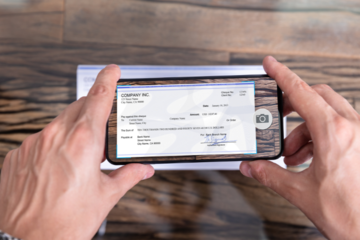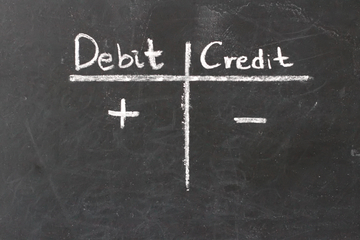When first seeking a loan, you will likely encounter a lot of terminology that’s new to you: APR, amortization, deferment. And no phrase is more nerve wracking than one which contains that dreaded word: fee. So what is a loan origination fee? Does a loan origination fee come with every loan? Can you avoid paying a loan origination fee?
In this article, we’ll demystify the meaning of loan origination fees and explain the different types you will run into. We’ll also explore when to avoid them, when to pay them, and whether or not they’re negotiable.
What is a Loan Origination Fee?
When borrowing money, lenders may charge a loan origination fee to cover any expenses that arise from processing your loan. This fee covers many of the administrative costs incurred during the loan application process, including underwriting costs, processing costs, and income verification costs.
Loan origination fees vary. Lenders may charge a flat rate or process this fee as a percentage of your principal amount. Keep in mind that many factors can impact your loan origination fee, including the amount of the loan, the type of the loan, and even things like having a co-signer.
Common Loan Types with Origination Fees
Many loans will come with loan origination fees. Let’s unpack the three most common: mortgage origination fees, personal loan origination fees, and student loan origination fees.
Mortgage
Mortgage loans are used to purchase or refinance real estate, and almost always come with an origination fee. Some lenders advertise mortgage loans without origination fees, but you will often still have to pay fees: they’re simply labeled with a different name. Remember, any fee relating to the processing of your loan application is an origination fee.
While there’s no minimum mortgage origination fee, in response to the subprime mortgage crisis of 2008 the government has enacted legislation which limits the maximum origination fees lenders may charge.
Typically, mortgage origination fees are around .5%-1% of the total loan amount. This may seem low, but it does add up. For instance, a $500,000 mortgage loan would have a $5,000 origination fee. Make sure to factor this in when applying for a mortgage loan—you don’t want to discover you’re $5,000 short when transferring the money to escrow!
Personal Loan
The process of applying for and receiving a personal loan varies widely depending on the lender, and the same is true for personal loan origination fees. Some personal loans may have no origination fees, while others may include steep percentage or fixed-rate fees.
Student Loan
As with mortgage and personal loans, private student loans vary greatly depending on the lender. However, federal student loans come with more consistent origination fees. Direct subsidized and unsubsidized federal loans have an origination fee around 1%, while fees for Direct PLUS loans trend higher, at or above 4%.
Are Loan Origination Fees a Dealbreaker?
Whether or not a loan origination fee will be a dealbreaker in your loan seeking process is dependent on your circumstances. Ask yourself, does this fee undermine the goal I was hoping to achieve with this loan? If so, the fee may be a dealbreaker.
It’s vital to do the math and compare different loan options. How long are you planning to take to pay back the loan? What interest will you have to pay back? Does a higher initial origination fee mean lower interest rates over time?
It’s critical to plan ahead and make sure you are factoring in origination fees when considering how a loan will benefit you. If you go in prepared, seeking a loan amount that includes these additional costs, there’s no reason why a loan origination fee should stop you from getting a loan.
When Are You Supposed to Pay for your Origination Fees?
Though most loan origination fees are charged up front, when you pay an origination fee can vary.
When to Pay your Mortgage Origination Fee
Mortgage origination fees are typically paid during closing, as part of your closing costs. Closing costs include many types of fees, such as taxes and insurance premiums. Closing costs can be paid separately from the loan agreement or they can be folded in and included with your loan. If you opt for the latter, do remember that you will pay interest on the fees.
When to Pay your Personal Loan Origination Fee
Lenders either deduct a personal loan origination fee from the loan itself, or allow borrowers to pay upfront. This differs slightly from how you might pay a mortgage loan origination fee if you opt to not pay separately.
For a mortgage loan origination fee, the amount of the loan would be increased to cover the fee. This allows you to receive the amount of money you were expecting, but also would mean you pay interest on that extra amount.
Alternatively, a personal loan may deduct the fee from the total loan amount — so if you were borrowing $10,000 and asked to fold in a 5% origination fee, you’d receive $9,500.
When to Pay your Student Loan Origination Fee
Student loan origination fees are typically paid over the life of a loan. Much like a mortgage origination fee (if you don’t opt to pay separately) this would be folded into the loan itself and would require the borrower to pay interest on the fee.
Looking for a personal loan with zero origination fees? Explore your options today through Integra Credit..



